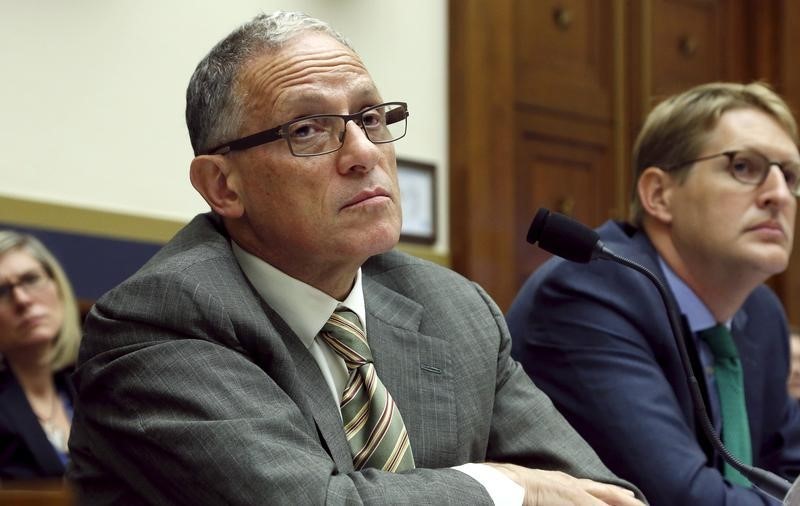Investing.com’s stocks of the week
By David Lawder
WASHINGTON (Reuters) - The dormant U.S. Export-Import bank moved a step closer to revival on Monday as Republicans and Democrats approved a rarely successful maneuver to force a vote to renew the trade lender's charter.
The move effectively bypasses House Financial Services Committee Chairman Jeb Hensarling, who has fought to close EXIM and has blocked legislation to revive it.
EXIM, which helps finance U.S.-produced goods and services bought by foreign customers, has been unable to lend or provide loan guarantees and trade insurance for nearly four months, causing some companies to lose export deals and move jobs overseas.
Opponents of the trade bank accuse it of providing taxpayer-funded "corporate welfare" for wealthy corporations including aerospace giant Boeing (N:BA) Co and industrial conglomerate General Electric (N:GE).
The House voted 246-177 in favor of the so-called "discharge petition," last used successfully in 2002. The move sets up a vote on Tuesday for passage of a bill to renew EXIM's charter through Sept. 30, 2019 with some governance reforms.
All of the "no" votes were Republicans, while 62 Republicans teamed up with 184 Democrats to force the issue back onto the House agenda.
"This is about jobs and a competitive America," said Representative Steny Hoyer, the second-ranking House Democrat.
But during a sometimes heated debate, opponents of the measure to force the vote argued that it subverted normal House procedures because no amendments could be offered.
"This is not regular order. This is shoving something down the American people's throats," said Representative Mick Mulvaney, a conservative Republican who opposes EXIM.
House passage would still leave EXIM facing an uphill battle for revival, however, because Senate Majority Leader Mitch McConnell has said he does not want to spend any more Senate time on the issue.
But now that substantial majorities in favor of EXIM have been demonstrated in both the House and Senate, a renewal bill could still be attached to a budget and debt limit deal that is being negotiated by congressional leaders and the White House.
